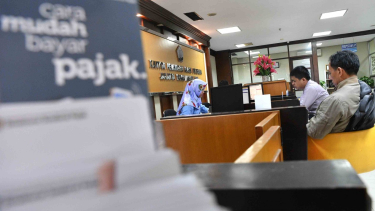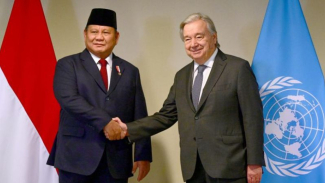The Negative Impact of Indonesia's VAT Increase to 12 Percent
- ANTARA FOTO/Sigid Kurniawan
Jakarta, VIVA – The government plans to raise the Value Added Tax (VAT) rate to 12 percent starting on January 1, 2025. This VAT hike is expected to hit low-income households and discourage international tourists from visiting Indonesia.
A recent report from the Economic and Social Research Institute of the University of Indonesia (LPEM UI) stated that VAT, being a tax directly applied to goods and services, could exacerbate inflationary pressures.
"Higher VAT rates usually lead to an increase in the prices of goods and services, directly raising the overall cost of living. This effect can be particularly challenging for low-income households, which may experience a reduction in purchasing power, leading to lower spending and overall consumer consumption," the report stated on Monday (Nov 18).
Moreover, the distributional effects of the VAT increase could disproportionately burden low-income households.
Although low-income individuals spend a smaller portion of their income on taxed goods and services, recent experiences in Indonesia show that the rising cost of living will heavily impact these households.
"Although low-income households spend a smaller share of their income on taxed goods and services, recent experiences in Indonesia suggest that the rising cost of living will significantly burden these households," the report explained.
As a result, this scenario could worsen poverty levels and widen social inequality, pushing more people below the poverty line and further straining vulnerable groups.
"The impact on competitiveness is also a concern, especially in sectors like tourism," it remarked.
The VAT increase could also deter international visitors, as Indonesia may be seen as less cost-effective compared to neighboring countries with lower tax rates.
"This situation could also affect foreign investment, as investors often seek regions with more favorable tax environment.
Additionally, the increased production costs associated with the higher VAT rate may reduce Indonesia's export competitiveness in global markets.
"The VAT increase could lead to higher tax avoidance or evasion, especially in sectors with high informality or limited oversight. This risk threatens to undermine government revenue goals and complicate law enforcement efforts, potentially offsetting the expected benefits of the VAT rate increase," it added.































